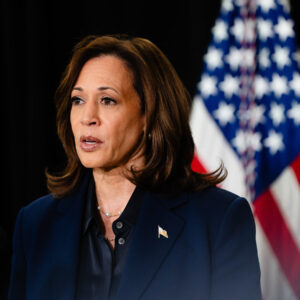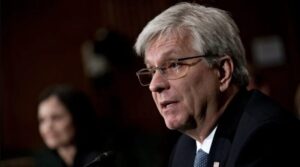Hamas recognises death of leader Yahya Sinwar but vows to keep fighting | Israel-Gaza war
Hamas has acknowledged the death of its leader Yahya Sinwar but vowed to keep fighting, in the face of international calls for an immediate ceasefire.
“We are continuing Hamas’s path,” Khalil al-Hayya, Sinwar’s deputy said from exile in Qatar, adding that the slain leader’s conditions for a cease-fire would not be compromised.
Those conditions included a cessation of Israeli military operations in Gaza, the complete withdrawal of the Israeli Defense Forces (IDF) from the occupied coastal strip, and the release of hundreds of Palestinian prisoners. He insisted that Hamas would emerge stronger than ever despite the death of its leader, but most experts predict that Sinwar’s killing was a significant blow to the movement, at least in the short term.
Benjamin Netanyahu showed no sign that he would now accept conditions he had rejected while Sinwar was alive. The Israeli prime minister instead emphasised how far the fugitive leader’s killing weakened his organisation, calling it an “important landmark in the decline of the evil rule of Hamas”.
Sinwar was killed after an Israeli patrol came across him and two of his bodyguards by chance on Wednesday in the southern Gaza city of Rafah. Netanyahu said Sinwar’s death could spell the “beginning of the end” of the war, now entering its second year, and he also vowed that Israel would keep fighting to achieve its war aims, in particular the freedom of the remaining hostages being held in Gaza.
For his part, Hayya warned the hostages “will not return … unless the aggression against our people in Gaza stops”.
A few hours earlier on Friday, Joe Biden had said Sinwar’s death “represents a moment of justice” pointing out that the Hamas leader “had the blood of Americans and Israelis, Palestinians and Germans and so many others on his hands”.
The US president also said he had appealed to Netanyahu on Thursday, after Sinwar’s death had been confirmed, to “make this moment an opportunity to seek a path to peace, a better future in Gaza without Hamas”.
Biden was speaking during a visit to Germany for a round of summit meetings with allies and partners. Olaf Scholz, the German chancellor, said Sinwar’s death opened up “the concrete prospect of a cease-fire in Gaza, of an agreement to release the hostages held by Hamas”.
The UK’s prime minister, Keir Starmer, added his voice to the western calls for an end to the Gaza war.
“The answer is diplomacy, and we must make the most of this moment. What is needed now is a ceasefire in Gaza, the immediate and unconditional release of all hostages, immediate access for humanitarian aid and a return to the path towards the two-state solution as the only way to deliver long-term peace and security,” Starmer said.
“The dire humanitarian situation cannot continue. And I say once again to Israel, the world will not tolerate any more excuses for humanitarian assistance. Civilians in northern Gaza need food now.”
Netanyahu has come under intense international pressure before during the year-long Gaza war, but it has not been backed up by serious threats to his country’s access to weapons from abroad.
The Israeli prime minister has been more responsive to pressure from the far right wing of his coalition, which holds the key to his political survival, and they have urged him to fight on.
Three of Netanyahu’s ministers, including Bezalel Smotrich, the far-right finance minister, shared a photograph on X on Friday they claimed showed the Palestinian Authority cabinet in the West Bank holding a prayer for Sinwar. The photograph was actually from a 2022 meeting.
“A moment of commemoration for today’s Hitler, Sinwar, after Israel eliminated him,” wrote Smotrich. “This is the same group with a different name … terrorists must be handled as terrorists.”
The region remains braced for a widely signalled Israeli response to a 181-missile salvo fired on 1 October by Iran, which Netanyahu and the country’s military leadership have warned will be significant, and which could prove a further step towards an all-out regional war.
Peace in Lebanon seemed equally remote in the wake of Sinwar’s death. The Iranian-backed Shia movement, Hezbollah, which stepped up attacks on northern Israel in October last year in solidarity with Hamas, said on Friday it was “entering a new phase” in its fight against invading Israeli troops.
The movement said it had begun using new weapons in the past few days including modern types of precision-guided missiles and explosive drones.
The Hezbollah statement appeared to refer to a drone packed with explosives that succeed in eluding Israel’s multiple-layer air-defence system and struck a mess hall at a military training camp deep inside Israel, killing four soldiers and wounding dozens.
Netanyahu’s government ordered IDF ground raids over the Lebanese border with the aim of sweeping away Hezbollah from southern Lebanon so that more than 60,000 Israeli residents displaced from northern border areas by the fighting could return home.
International peacekeepers in the UN Interim Force in Lebanon (Unifil) have been struggling to maintain their presence along the border amid increasingly intense fighting.
Netanyahu has demanded that they withdraw from their observation posts but the Unifil leadership has refused.
Andrea Tenenti, the main Unifil spokesperson said a “unanimous” decision was taken by its 50 troop-contributing countries and the UN Security Council to hold its positions and continue efforts to monitor the conflict and ensure aid gets to civilians.
“The IDF has repeatedly targeted our positions, endangering the safety of our troops, in addition to Hezbollah launching rockets toward Israel from near our positions, which also puts our peacekeepers in danger,” Tenenti told a UN news briefing in Geneva by video.
Lebanon’s prime minister, Najib Mikati, said that there was “no priority above the ceasefire” and that Lebanon was committed to the “full implementation” of all its international resolutions, especially resolution 1701. That UN security council resolution, which ended the 2006 Israel-Hezbollah war, called for the demilitarisation of the border area up to the Litani river, some 30 km north of the UN-designated “blue line” that demarcates the boundary between the two countries.
Speaking in Beirut after a meeting with Mikati, his Italian counterpart, Giorgia Meloni, said that targeting of UN peacekeepers was unacceptable and that both sides must “ensure at all times the safety of each of these soldiers”. She said the peacekeepers will be needed in any post-conflict scenario.
#Hamas #recognises #death #leader #Yahya #Sinwar #vows #fighting #IsraelGaza #war
News plays a pivotal role in our lives by keeping us informed and connected to the world. It serves as a critical source of information, offering updates on current events, politics, economics, science, and more. Through news, we gain awareness of global issues and local developments, helping us make informed decisions in our personal and professional lives. News also fosters discussion and debate, encouraging critical thinking and perspective-taking. Moreover, it promotes transparency and accountability among governments, businesses, and other institutions. In a rapidly changing world, staying updated with the news enables us to adapt to new challenges and opportunities, shaping our understanding of the complexities of society. Ultimately, news is not just about information; it empowers us to participate actively in the world around us, contributing to a more informed, engaged, and responsible global citizenry.
Health is fundamental to our well-being and quality of life, making it an essential aspect of daily existence. It encompasses physical, mental, and emotional aspects, influencing our ability to function effectively and enjoy life fully. Prioritizing health allows individuals to maintain optimal physical fitness, reducing the risk of diseases and promoting longevity. Mental health, equally crucial, affects our cognitive abilities, emotional stability, and overall happiness. Investing in preventive healthcare through exercise, balanced nutrition, and regular medical check-ups helps in early detection of potential health issues, ensuring timely intervention and treatment. Beyond individual benefits, a population’s health impacts societal productivity and economic stability. Governments and organizations worldwide emphasize public health initiatives to address pandemics, health disparities, and promote overall well-being. Ultimately, health serves as the foundation upon which we build our lives, influencing our ability to pursue goals, nurture relationships, and contribute meaningfully to society.
Money plays a crucial role in our lives as a means of financial security and freedom. It enables us to meet basic needs such as food, shelter, and healthcare, while also providing opportunities for education, travel, and personal growth. Beyond material comforts, money facilitates social connections and experiences that enrich our lives. It empowers individuals to invest in their futures, whether through savings, investments, or entrepreneurial ventures, thereby fostering economic stability and growth. However, the pursuit of wealth should also be balanced with ethical considerations, as money can influence relationships and societal dynamics. Responsible management of finances is key to achieving long-term goals and mitigating financial stress. Ultimately, while money is a tool for achieving aspirations and fulfilling desires, its true value lies in how it is utilized to improve both personal well-being and the broader community.
Earning Easy Money in 2024: Opportunities and Considerations 💸
In 2024, the landscape of earning easy money presents diverse opportunities, albeit with considerations. The digital age offers platforms for freelancing, online trading, and e-commerce, allowing individuals to leverage skills and creativity for financial gain. Cryptocurrency investments continue to allure with potential for quick profits, yet they entail high volatility and risk. Moreover, the rise of the gig economy enables flexible work arrangements through apps and websites, offering quick payouts but often without job security or benefits. Passive income streams such as rental properties and investments in stocks or bonds remain viable, but demand initial capital and ongoing management. Amid these options, caution is essential to avoid scams and unsustainable ventures promising overnight success. Ultimately, while the allure of easy money persists, informed decisions, diligence, and a long-term perspective are crucial for sustainable financial growth and security in the dynamic year ahead.





